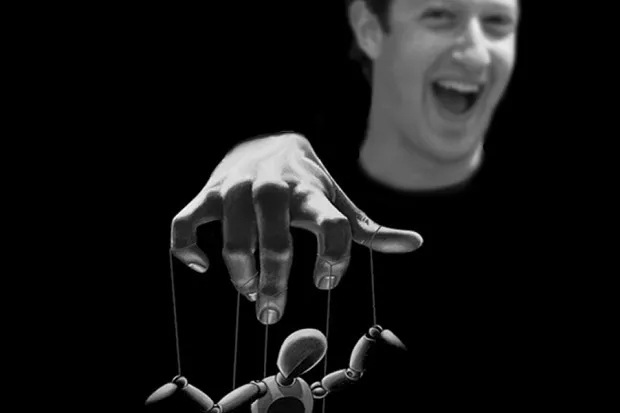If you type "Facebook trolls" into Google Search today, the "top stories" will tell you how to find out if you "liked" any of the now-infamous "Kremlin-linked" Russian troll accounts that were allegedly responsible for subverting U.S. democracy in the 2016 Presidential election and throwing the win to Donald Trump (for the bargain-basement price of $100k in ad spending). What you are much less likely to come across in your first page of results is this recent article from Bloomberg revealing Facebook's own secret political unit which collaborates with politicians such as Philippines "dictator" Rodrigo Duterte and political groups such as Germany's anti-immigrant AfD party in order to boost these politicians and groups political influence and sway elections.

While Facebook chief Mark Zuckerberg defended the platform during the 2016 election, claiming Facebook "will do our part to defend against nation states attempting to spread misinformation and subvert elections", Bloomberg suggests that Facebook actively participates in exactly that kind of behavior, working "with political parties and leaders including those who use the platform to stifle opposition—sometimes with the aid of 'troll armies' that spread misinformation and extremist ideologies."
Elizabeth Linder, who led Facebook politics Europe, Middle East and Africa efforts in 2016, herself became disillusioned and left the company, saying "it's not Facebook's job, in my opinion, to be so close to any election campaign."
The political unit's current chief, Katie Harbath, former digital strategist for Rudy Giuliani's 2008 Presidential campaign, defends the company. "We take our responsibility to prevent abuse of our platform extremely seriously," Harbeth says. "We know there are ways we can do better and are constantly working to improve."
A recent report by Freedom House suggests that those efforts are warranted. "Governments are now using social media to suppress dissent and advance an antidemocratic agenda," says Sanja Kelly, director of the Freedom on the Net project. The report says that 30 out of 65 countries studied "deployed some form of manipulation to distort online information," using paid commentators, trolls, bots, fake news and propaganda outlets. Journalists and government critics were targeted by cyberattacks in at least 34 of the 65 countries.
While it isn't clear that Facebook has actively participated in such subversive activities, it is clear that Facebook uses its support of winning candidates in order to insert itself in government, making the company well positioned to push back against regulations it opposes. Facebook has also resisted transparency in the U.S., since 2011 asking the Federal Election Commission for blanket exemptions from political advertising disclosure rules.
Exactly how far is Facebook willing to go for money and political influence? At this point, we can only speculate, but it's clear that all of us need to be concerned about a social media behemoth like Facebook wielding so much political influence around the globe.
YouTube: https://www.youtube.com/channel/UC_rHIryFaY1d9Tt46SQE8tQ
Twitter: http://twitter.com/lifttheveil411
E-mail: lifttheveil411@gmail.com